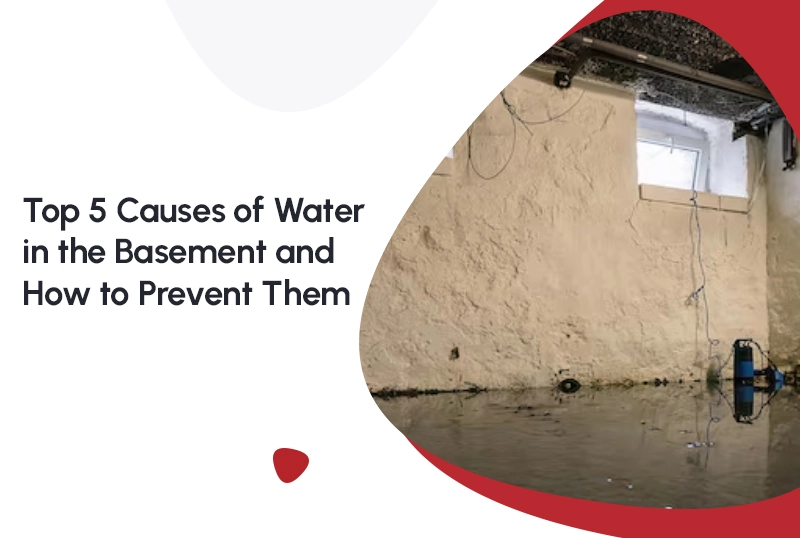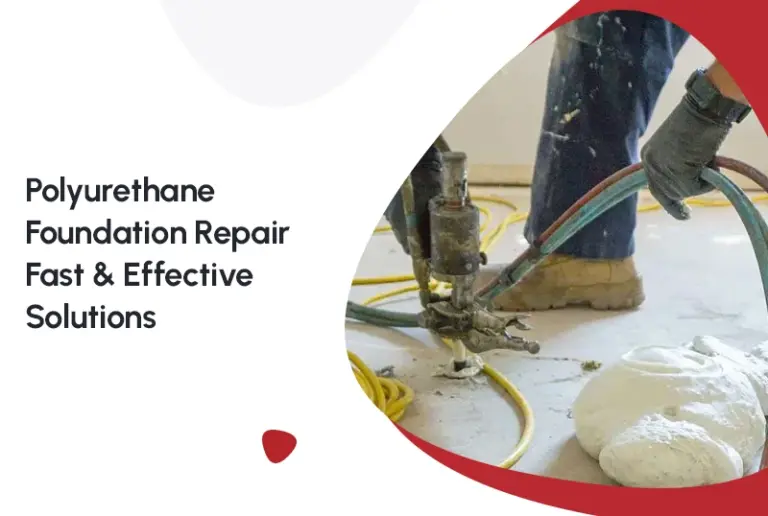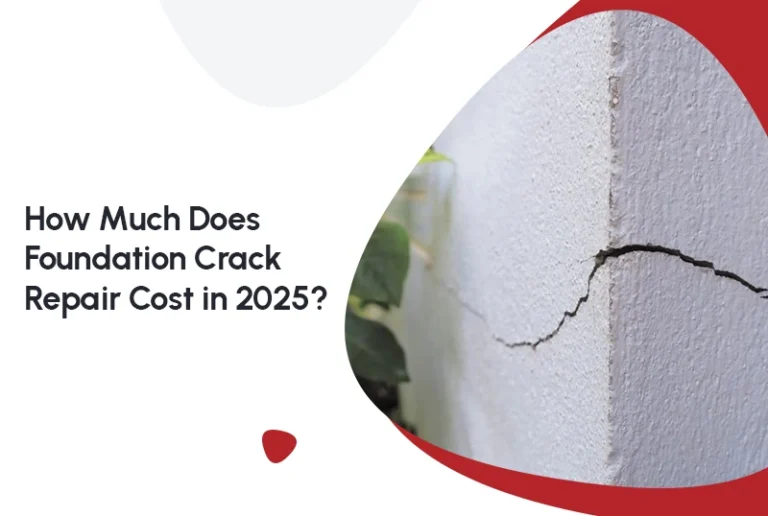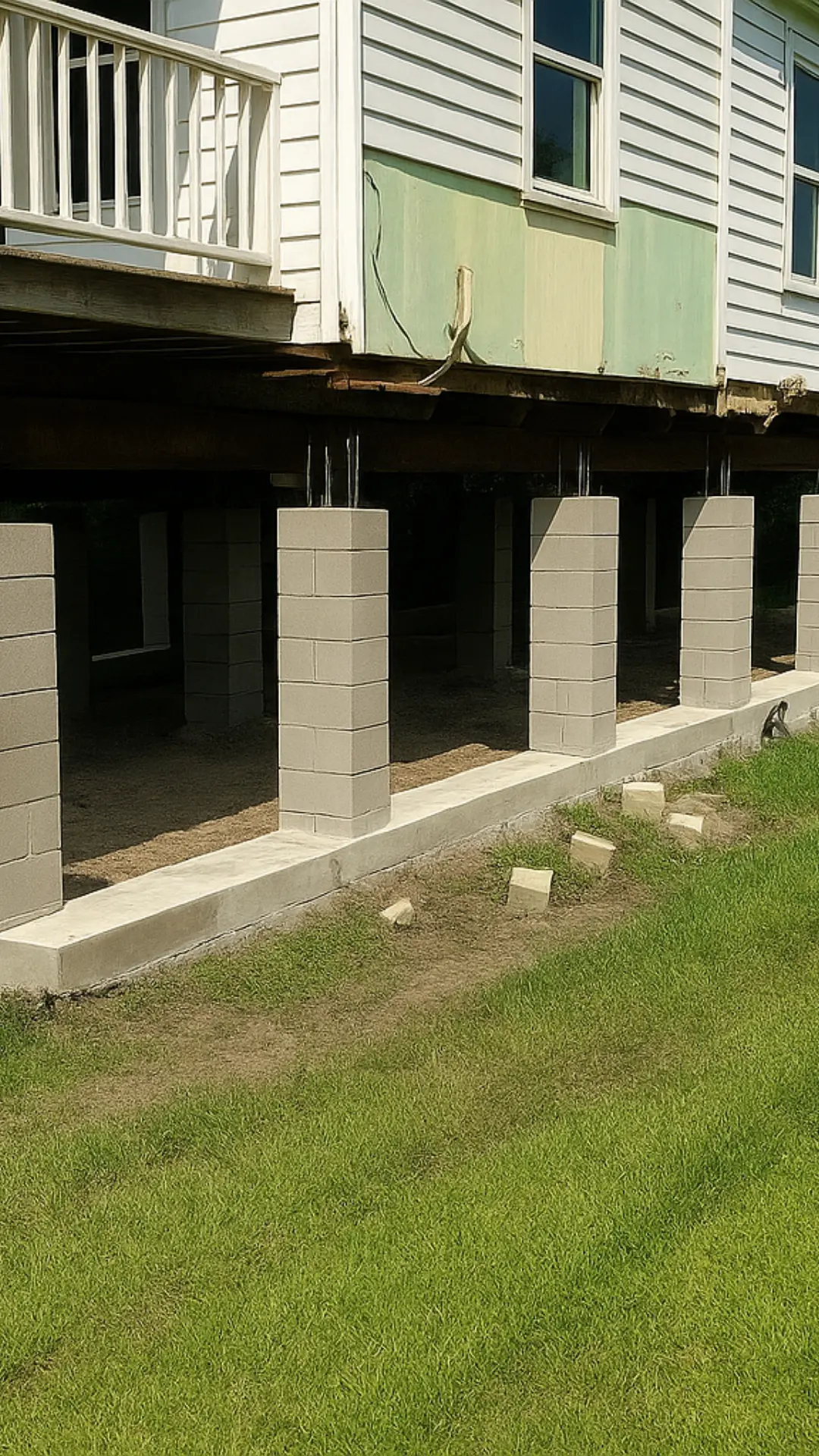Water in the basement—ugh! It’s one of those problems that creeps up on you and causes way more damage than you’d ever expect. Whether it’s dripping walls, flooded floors, or just that musty smell lingering in the air, water in the basement can wreak havoc on your home’s foundation and your peace of mind.
But don’t panic! The good news is, water in the basement doesn’t have to be an ongoing issue. By understanding the top 5 causes of water in the basement, you can prevent the situation from getting out of hand. In this blog, we’ll explore the common culprits, how to prevent them, and some handy tips to keep your basement dry and safe.
Why Is Water in the Basement Such a Big Deal?
Water in the basement is no small matter—it can lead to mold growth, foundation damage, and even structural instability. When water seeps into your basement, it’s often a sign that something is off with your foundation or drainage system. Left unchecked, this moisture can affect the integrity of the walls, damage the flooring, and create a perfect environment for mold and mildew to grow.
But here’s the good news: once you know what’s causing the water in the basement, you can take action to prevent it. And that’s what we’re here to help with!
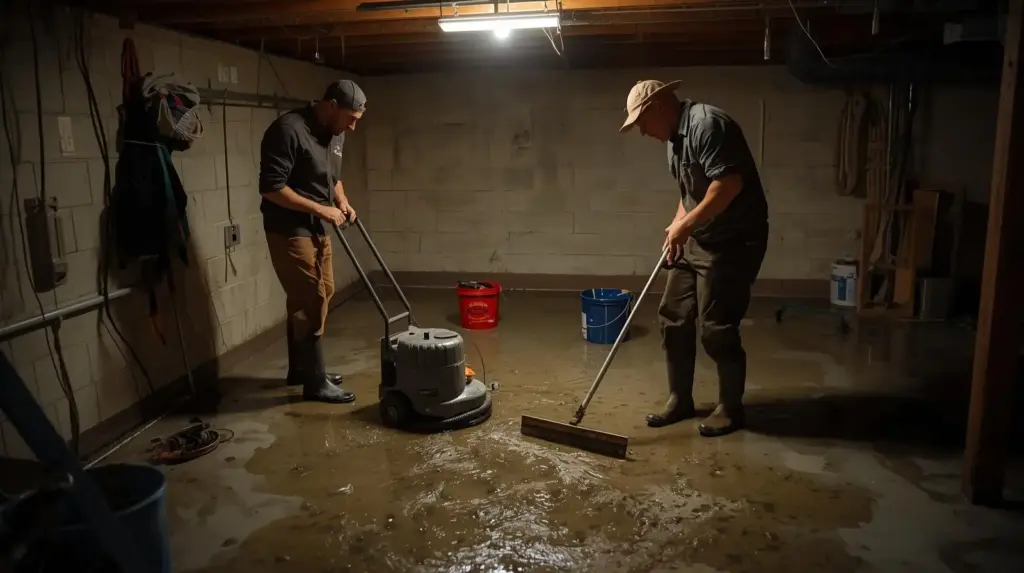
Top 5 Causes of Water in the Basement and How to Prevent Them
1. Poor Foundation Drainage
Cause: One of the main causes of water in the basement is poor foundation drainage. If your system isn’t working properly, water can accumulate around the basement walls, causing moisture infiltration and even flooding.
Why It Happens:
- Clogged gutters or downspouts prevent water from being directed away from the foundation.
- Improper grading around the foundation causes water to pool near the basement walls.
- Cracks in the foundation allow water to seep in.
How to Prevent It:
- Regularly clean your gutters and downspouts to ensure water flows away from the foundation.
- Make sure your landscaping is graded so water flows away from your home.
- Install or maintain a foundation drainage system such as a French drain or sump pump to keep water out.
Pro Tip: Adding foundation waterproofing can help prevent moisture from seeping into your basement and protect your home from water damage.
2. Cracks in the Foundation Walls
Cause: Cracks in the foundation walls are another major culprit when it comes to water in the basement. As homes settle over time or soil shifts, small cracks can form in the foundation. Even the tiniest crack can allow water to infiltrate and cause problems in your basement.
Why It Happens:
- Foundation settling or soil movement can cause the foundation to shift, leading to cracks.
- Water pressure from outside can push against the foundation, causing cracks to expand.
- Freezing temperatures can cause water to expand inside cracks and make them worse.
How to Prevent It:
- Inspect your foundation regularly for visible cracks, especially after heavy rainfall or freezing weather.
- Fill small cracks with a high-quality foundation crack sealant to prevent water from seeping in.
- For larger cracks, consult a foundation repair professional to assess and repair the damage.
According to FEMA, cracks in the foundation are responsible for over 25% of all foundation-related issues in residential homes.
3. High Water Table
Cause: In some areas, the water table (the level below which the ground is saturated with water) may be high enough to cause water in the basement. If the water table rises, especially after heavy rain or snowmelt, it can exert hydrostatic pressure against the foundation walls, forcing water into the basement.
Why It Happens:
- In areas with high water tables, the ground is already saturated with water, which makes it easier for moisture to seep into the basement.
- Heavy rains or snowmelt can raise the water table temporarily, leading to increased pressure on the foundation.
How to Prevent It:
- Install a sump pump to help remove excess water from the basement.
- Add a vapor barrier to your basement floor to prevent moisture from seeping in.
- If you’re in a high-risk area, consider installing a French drain to divert groundwater away from the foundation.
4. Plumbing Leaks
Cause: Sometimes, the source of water in the basement isn’t external at all—it’s internal! Plumbing leaks can cause water to pool in your basement if pipes or drains become damaged or start leaking. This can lead to slow leaks that you might not notice immediately but can cause significant water damage over time.
Why It Happens:
- Old or damaged pipes can crack or break, causing leaks.
- Improper installation of plumbing systems can lead to drainage issues.
- Clogged or blocked drains can cause water to back up and seep into the basement.
How to Prevent It:
- Check your plumbing regularly for signs of leaks, especially around joints or connections.
- If you notice water pooling near pipes or drains, call a plumber immediately to avoid bigger problems.
- Install a drainage system around plumbing areas to catch any excess water before it causes damage.
5. Poorly Installed or Faulty Window Wells
Cause: Window wells around basement windows can also lead to water infiltration. If they’re not properly installed or maintained, they can trap rainwater and direct it right into your basement.
Why It Happens:
- Improperly sealed window wells can let water leak into your basement.
- Clogged window wells trap water and create a pooling effect around the basement window.
- Cracked or damaged window wells let water enter directly.
How to Prevent It:
- Maintain and clean window wells regularly to prevent debris buildup.
- Install proper drainage in window wells so that water can be diverted away from the basement.
- Ensure window wells are properly sealed and check for any cracks or gaps.
How FNF Foundation Can Help with Water in the Basement
At FNF Foundation, we specialize in foundation drainage systems and foundation repairs. Whether you need a French drain, sump pump installation, or foundation waterproofing, our team is here to help keep your basement dry and your foundation stable.
Here’s how we can assist you:
- Foundation drainage installation to keep water away from your home.
- Waterproofing solutions to protect your basement from moisture damage.
- Foundation crack repair to ensure your home stays secure and dry.
- Basement wall crack repair using advanced methods like epoxy injections.
Don’t wait until it’s too late—contact us today to schedule an inspection and find the best service for your basement!
Final Thoughts
Dealing with water in the basement is never fun, but with the right knowledge and timely action, you can protect your home from water damage and foundation issues. By addressing basement wall cracks, maintaining proper drainage, and preventing plumbing leaks, you can keep your home safe and dry for years to come.
At FNF Foundation, we offer a variety of services to help with foundation repair, waterproofing, and drainage solutions. Don’t wait for the next storm—contact us today to learn how we can help keep your basement dry and your foundation secure!
Frequently Asked Questions About Water in the Basement
Q1: How do I know if my basement has a water problem?
A: Look for signs like musty odors, damp walls, puddles on the floor, and visible cracks in the foundation or walls. If you notice these signs, it’s time to investigate further.
Q2: How much does it cost to fix water in the basement?
A: The cost of repairs depends on the severity of the problem. Simple solutions like sump pump installation may cost $500 to $1,500, while more extensive repairs like foundation drainage systems can range from $2,000 to $10,000.
Q3: Can I fix water in the basement myself?
A: For minor issues like crack sealing or window well maintenance, DIY solutions may work. However, for more significant problems like foundation cracks or drainage system issues, it’s best to hire a professional.
Q4: Will fixing basement water issues increase my home’s value?
A: Yes! Waterproofing and repairing foundation cracks will not only prevent future damage but can also increase your home’s value and make it more appealing to buyers.
Q5: How long does it take to fix water damage in the basement?
A: Repair times vary based on the extent of the damage. Minor fixes like crack sealing can be completed in a few hours, while full waterproofing and drainage system installations may take a few days.
